Suffering despair, sadness, disappointment and anger was needed before Aberdeen could experience the euphoria of Gothenburg, says Gordon Strachan.
Mercurial playmaker Strachan believes the Dons had to suffer setbacks and heartache to prepare them to conquer Europe.
Strachan says every Gothenburg Great suffered misfortune and despair.
They dealt with it and became stronger individually and as a unit.
To the point where they were able to face Euro giant Real Madrid and Bayern Munich and shout: “bring them on”.
Because they knew, through adversity, they could deal with any setback.
Strachan, 66, said: “When I look back at Gothenburg, there were moments of despair, sadness, disappointment and anger.
“But funnily enough that never really registers now, it is just the euphoria of the cup win.
“Life is full of disappointments, though.
“If you asked any one of the players in that Gothenburg team have you been disappointed, have you been sad? Have you thought you were the worst player in the world?
“Yes we have.
“We have all suffered that and had to deal with it.
“Due to that we were able to face Real Madrid and Bayern Munich – bring them on.
“There will be moments in these games that are be nice for us, but we knew we could deal with that.
“I think now we are trying to make people go through life with the heartbeat the same all the way through, flat-lining through life.
“It just doesn’t go like that, life.”
‘Battle of Britain’ loss to Liverpool built Dons’ character
For character building set-backs, Strachan points to the European Cup second round showdown with Liverpool in 1980.
Billed as “The Battle of Britain”, Scottish league champions Aberdeen faced the English title-winners.
Liverpool won the first leg at Pittodrie 1-0 before overwhelming the Reds 4-0 at Anfield.
Strachan remembers having to deal with “the whole of Britain laughing at us”.
Aberdeen would have the last laugh, though.
Lessons were quickly learnt and within a year they had triumphed in another “Battle of Britain”, beating Ipswich 4-2 on aggregate in the UEFA Cup first round.
Ipswich were UEFA Cup holders at the time and were riding high in the English league.
Within three years of that Liverpool humiliation, Aberdeen were kings of Europe in Gothenburg.
Strachan said: “Life is all about character building moments.
“Losing to Liverpool was one, when you think you are good and then get hammered over two legs.
“If you don’t have character building moments you will never be able to deal with a crisis when it comes along.
“We had to deal with that when the whole of Britain was laughing at us, saying: ‘Aberdeen thought they were good, but got smacked in the Battle of Britain’.
“We had to take that hit, but we got on with it.
“Then we beat Ipswich Town who had won the UEFA Cup and were top of the English league at the time.
“We were magnificent against Ipswich and blew them away.”
Strachan waited two decades before watching final back
The emotions before, after and during the final in Gothenburg remain vivid for Strachan.
However, the minutiae of the 120 minutes against Real Madrid remain blurred.
Strachan admits he didn’t watch the game until 20 years after, when he had left Southampton as manager in 2004.
It was only then when he watched the footage that Strachan realised just how good Aberdeen were that rainy night in Gothenburg.
He immediately phoned fellow Gothenburg Great and close friend Alex McLeish.
It was no fresh revelation for McLeish – he had always known how magnificent the Reds were against the Spanish giants.
Strachan said: “The memories of the time are sketchy as it was a blur of fun, enthusiasm, drive, expectancy – to a level you never really take it in.
“I’ll tell you something, it was a long time before I actually watched the game.
“It was just after I left Southampton and there was nothing to do.
“I had a disk of Gothenburg, but I had never watched the game even though it was 20 odd years since the final.
“As I watched it, I thought: ‘Wow, we were good’.
“I thought we were good, but not as good as we actually were.
“That might maybe sound big headed, but it’s not.
“We were functional, efficient, driven and fit, but there was a lot more to us than that.
“We had all those things, but the lads had great technique and vision.
“After I watched it I phoned big Alex and said how good we were.
“Whilst watching the game, I saw I had a good shot and the goalie made a save.
“If you had said to me before I watched that video that I had a shot, I would have said: ‘No, can’t remember that’.
“I had no idea. Not a clue.”
A nervous ending and a piggy-back
There are some clear memories for Strachan of the European Cup Winners’ Cup final – during and after the triumph.
The fear in the dying embers of the game that Real Madrid would score from a free-kick to force a penalty shoot-out. And a team-mate praying for divine intervention in that moment.
Then, in the wee hours of the morning, after the celebrations, giving wife Lesley a piggy-back.
He explained: “After John (Hewitt’s) goal there was a free-kick for Real Madrid towards the end of extra-time.
“It took about 45 seconds to a minute for them to take it.
“I’m thinking: ‘This lot don’t deserve it, seriously.’
“I could hear someone, I think it was Peter Weir, asking for God to make him knock the ball past the post.
“At about five in the morning, giving my wife a piggy-back – I remember that.”
League title win got the ball rolling
Strachan was brought to Aberdeen from Dundee in November 1977 by then-Dons boss Billy McNeill for a fee of £40,000 plus Jim Shirra.
He would rack up 330 appearances for the Reds before Sir Alex Ferguson brought him to Manchester United for £600,000 in 1984.
Sir Alex replaced McNeill, who moved to take over Celtic, in 1978.
In those early days, did Strachan – who also won the European Super Cup in 1983 – ever conceive he could conquer Europe with Aberdeen?
He said: “No-one as a footballer had those lofty thoughts.
“Football was a way to make a decent living, not a great living.
“It was also where you could make your dreams come true.
“The dreams were simple – it wasn’t like today when they have cars, houses, private plans, and things like that.
“That was the simplicity of life at the time, there was nothing grand.
“You never thought about winning the league, cups and European trophies – it was about making a living for you and your family.
“But once you get the ball rolling by winning the league (1980), you think that’s the first step.
“You realise we are not bad. Then you win the Scottish Cup.
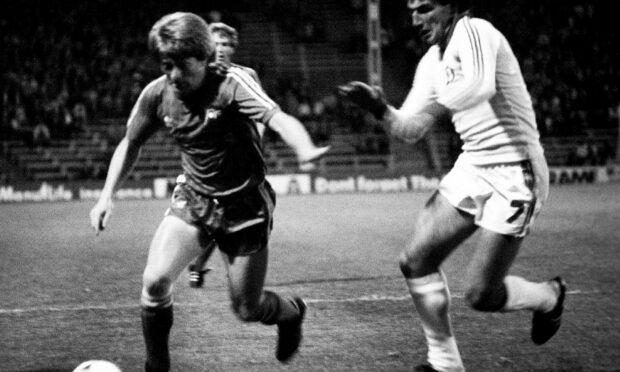
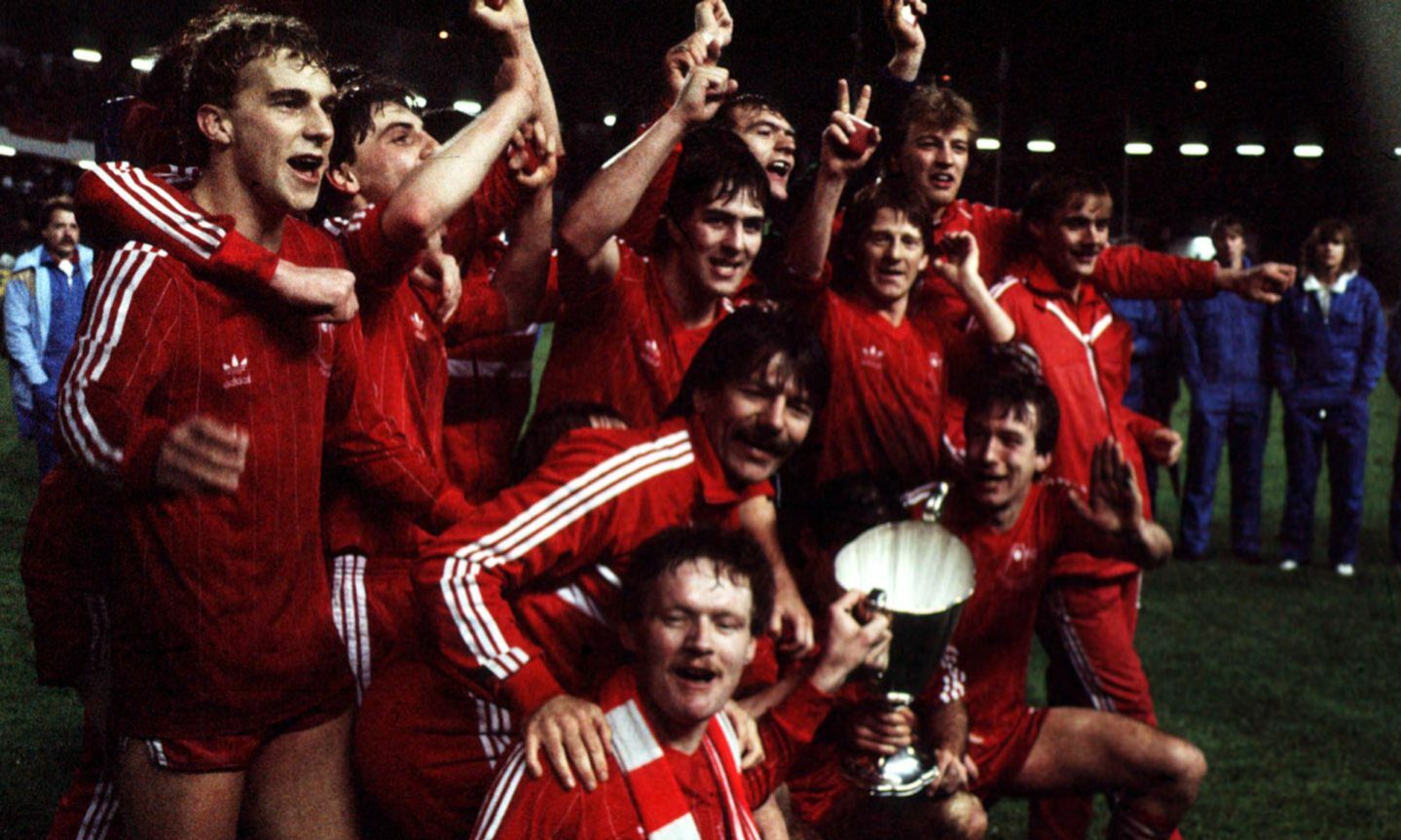
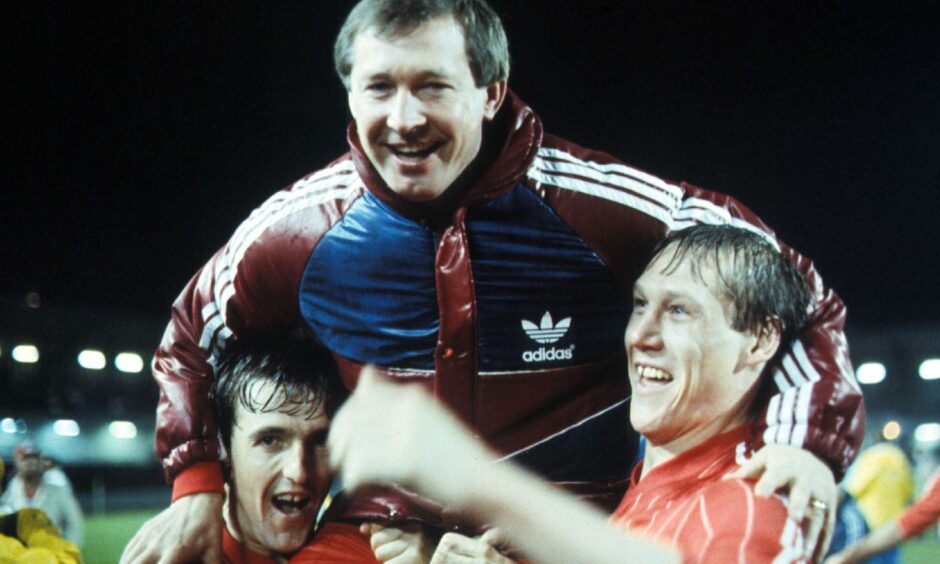
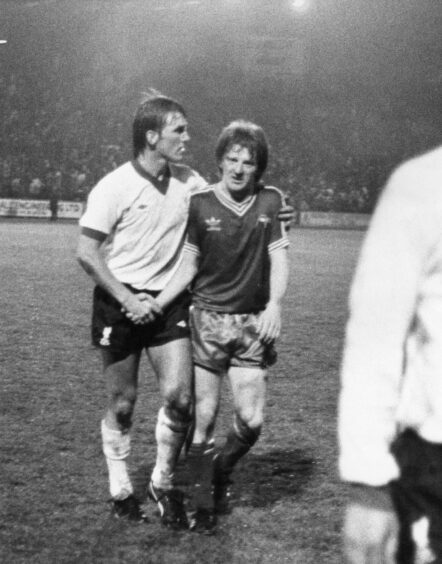
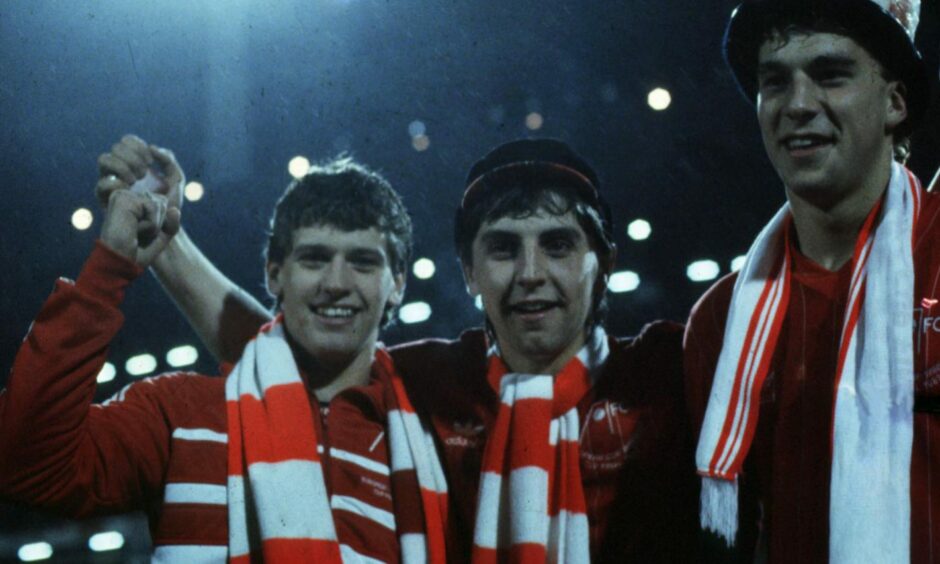
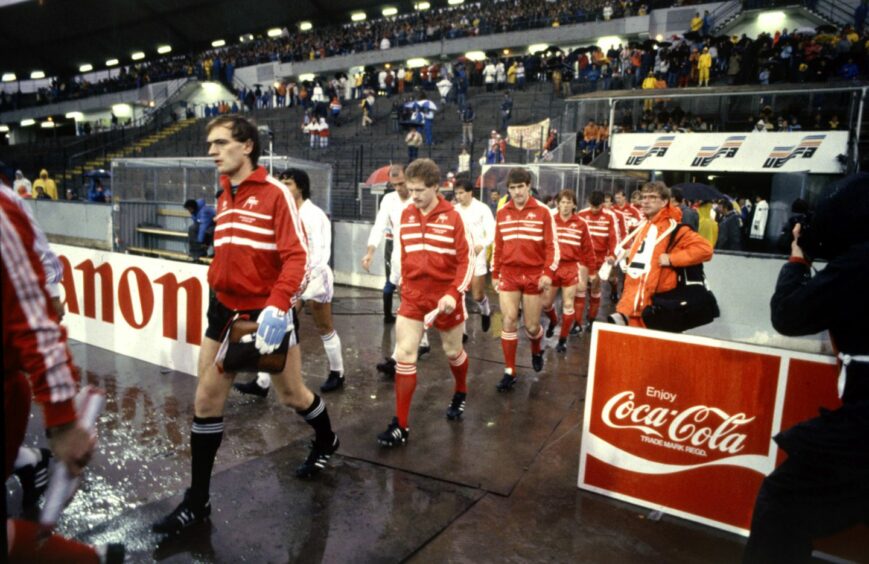
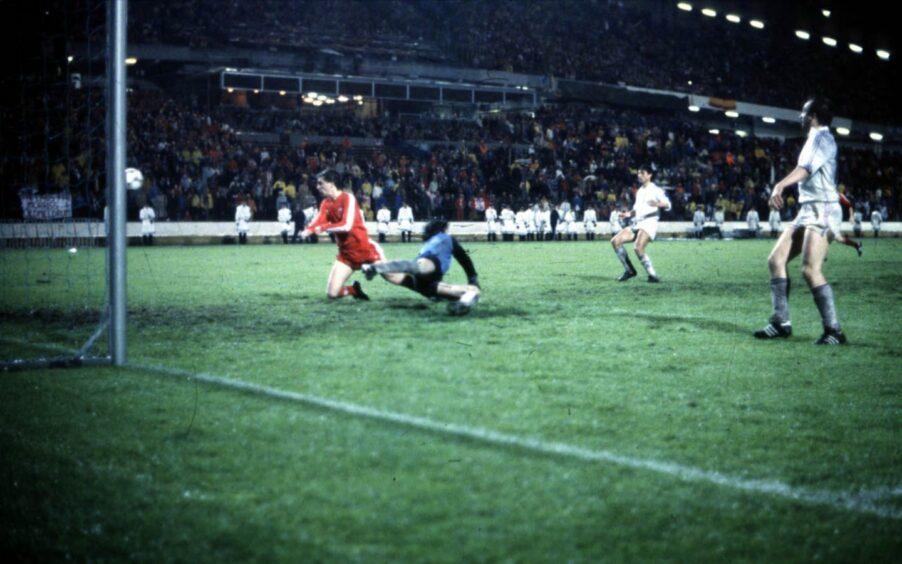
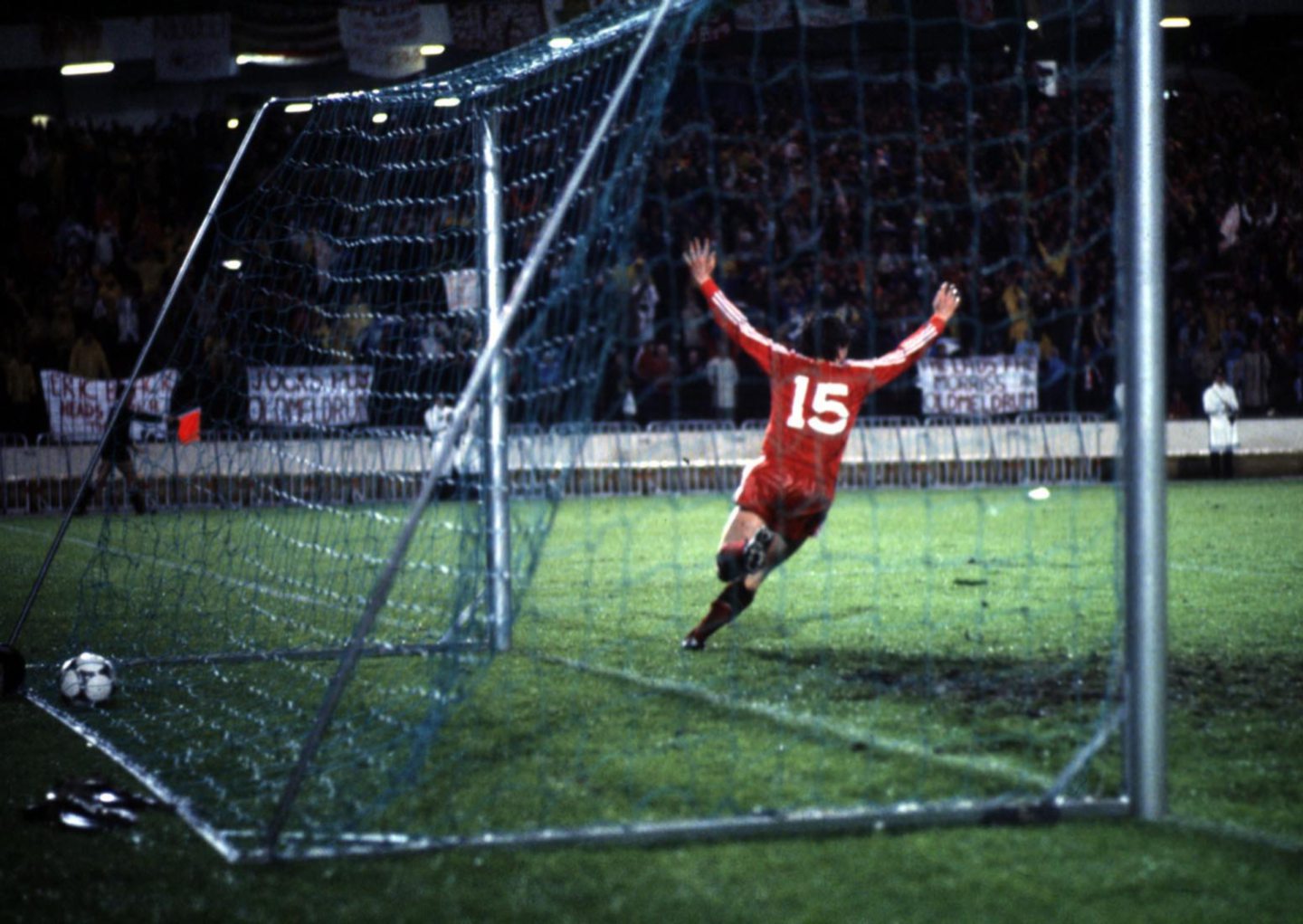
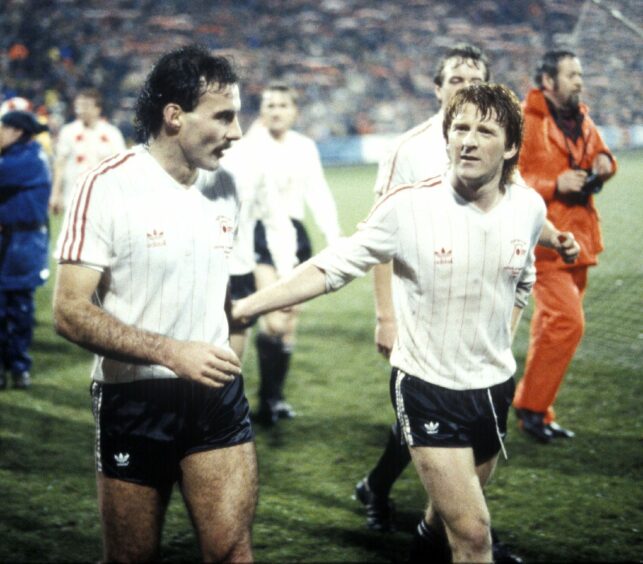
Conversation